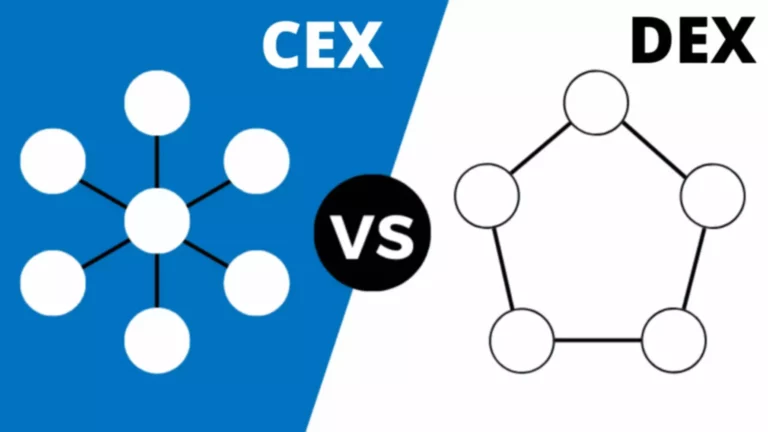A prime supplier is a big monetary institution that provides a giant number of firms, from money administration to securities lending to risk management for different huge institutions. The evolution of commerce execution companies has been a cornerstone throughout the improvement of contemporary monetary markets. The panorama of economic markets can be advanced for institutional and skilled traders, yet it’s crucial to appreciate the function of prime brokers and executing brokers. Prime brokers lengthen a gamut of services to large merchants, whereas executing brokers present best execution for trades.
- Additionally, executing brokers typically offer aggressive pricing, which may help merchants decrease their trading prices and maximize their returns.
- If you’ve ever bought or sold shares of stock, you understand how these primary processes work — at least on the surface.
- Also, they makes cash by a fee in return for providing a transaction, they acquire a premium on the loan from industrial banks or rehypothecation.
By understanding the vital thing variations between these two kinds of brokers, merchants can make knowledgeable selections and optimize their buying and selling efficiency. In contrast, prime brokers supply a a lot wider range of companies extending far beyond simple order execution. They cater to sophisticated institutional traders, corresponding to hedge funds, massive asset managers, and proprietary trading firms. Prime brokers provide a comprehensive suite of companies designed to assist the complex buying and selling activities of those high-volume purchasers. This consists of not only trade execution but in addition financing, clearing and settlement, securities lending, margin financing, refined technology platforms, and in-depth analysis and reporting capabilities.
How A Lot Do Execution Merchants Make?
If you’ve ever purchased or bought shares of inventory, you perceive how these primary processes work — no less than on the floor. You select the number of shares (or fractional shares) you purchase or sell, then your commerce is executed by your broker or investment app. A prime broker typically provides research, trading, and lending providers to hedge funds, institutional traders, and different professional merchants. They provide access to various markets and products, including shares, bonds, and derivatives. Some prime brokers provide entry to buying and selling platforms, allowing purchasers to execute trades or have their in-house buying and selling division deal with them.

Large prime brokerage firms monitor client portfolio danger utilizing house-designed risk methodologies that consider worst-case loss eventualities, liquidity, concentration, and macroeconomic dangers. Introducing brokers earn commissions primarily based on the amount of trades their shoppers make, or they’ll earn income on the unfold between the purchase and sell price in the event that they’re concerned in delivery versus cost trades. Purchasers who have interaction in substantial quick selling or leverage are extra profitable for prime brokers than those that do less of those activities. The majority of prime brokerage income comes from financing and lending spreads, that are charged in basis points on the value of client loans, deposits, quick sales, and artificial financing products.
Clearing brokers sometimes have direct interplay with investor purchasers and handle the processes of conferring with these purchasers on potential trades. By contrast, the executing dealer is targeted on what happens after the shopper has requested that a selected commerce be positioned for execution. A hedge fund employing advanced arbitrage methods might require each a major dealer and multiple executing brokers. This instance showcases how the nuances of various trading approaches can necessitate leveraging both prime brokerage and execution brokerage providers to realize optimal outcomes. Understanding the distinction between prime dealer and executing broker https://www.xcritical.com/ is crucial for effective portfolio management.

Shopper Companies:
Understanding the differences between these two kinds of brokers is crucial for making an knowledgeable choice when selecting a dealer. The executing broker vs prime dealer dilemma is a typical challenge confronted by merchants, and it’s essential to grasp the advantages and disadvantages of each earlier than making a decision. The prime brokerage represents a comprehensive bundle of providers created for big hedge funds and significant market gamers, going beyond the standard market order execution provided by regular brokers. Most prime brokers seek to service hedge funds, establishments like pension funds, and commercial banks. While established hedge funds are a major target shopper, there’s always the hope for brand new hedge funds with rising stars that will develop into a giant shopper. The operate of an executing dealer is considerably totally different from that of a clearing dealer.
This permits for informed monetary selections and proactive money administration strategies. A prime brokerage agreement is a contract that purchasers signal to element what companies the prime broker will provide and their applicable fee structure. Other broker-dealers, then again, will sometimes work with one clearing broker to clear their trades. This is commonly the case with introducing brokers, who send Proof of personhood their clients’ cash and securities to a clearing broker for clearing.

Prime brokers could additionally be keen to regulate their charge structure primarily based on the client’s trading volume and the general enterprise relationship. For high-net-worth individuals or institutional investors with vital buying and selling exercise, negotiating favorable terms might be potential. This is much less widespread with executing brokers who generally function on standardized commission buildings. Therefore, understanding the various fee elements, potential for hidden costs, and prospects for negotiation is essential in assessing the true cost of partaking both a main dealer or an executing broker.
Outcomes from using a major brokerage service usually are not typical and will differ from individual to individual. The key to working with a top-tier prime broker is building robust relationships, which might help increase consciousness of your hedge fund and improve your popularity as a model. This is very necessary when you’re trying to climb the ranks and become a top-tier hedge fund. Having a high tier prime dealer can have an immediate enhance to your reputation as a hedge fund, nevertheless it’s not simple to get their consideration as they only hunt down the biggest clientele. If the inventory is traded on an trade (for instance, the NYSE), it can ship the order on to that change, to a different change, or to a third market maker. If the inventory trades in an over-the-counter (OTC) market similar to Nasdaq, the broker might ship the order to that market maker.
When an investor places its an order to buy a hundred shares of Microsoft inventory, the executing dealer will obtain the request and examine it to make sure its legitimacy and validity. This additionally consists of background checks on the trader to filter any suspicious activities. At the same time, execution brokers can work independently with retail merchants who invest for themselves or on behalf of their shoppers. Launching a monetary service enterprise is one lucrative method to make earnings, capitalising on the growing FinTech tendencies and technologies invested on this sphere.
Moreover, prime brokers regularly provide securities lending, a more complicated financing mechanism the place shoppers can lend their securities to others in change for collateral and curiosity revenue. This technique allows for diversification of revenue streams, enhancing general portfolio performance. The distinction between prime dealer and executing dealer entry to those sophisticated tools is a critical factor for hedge funds and other institutional buyers. Prime brokerage platforms sometimes combine various providers, such as buying and selling, clearing, and financing, into a single ecosystem. This integration can streamline workflows and improve efficiency, especially for complex trading operations.
Prime brokers are on the forefront of this process, ensuring that trades are executed with precision and care, reflecting the strategic intentions of patrons and the dynamic nature of financial markets. Understanding these mechanics is crucial for anyone concerned on the earth of buying and selling and funding administration. CFDs and Unfold Bets are advanced devices and include a high threat of shedding money quickly because of leverage. Sixty seven.8% of retail investor accounts lose money when buying and selling CFDs and Spread Bets with this provider. You ought to contemplate whether or not or not you perceive how CFDs and Unfold Bets work and whether you’ll find a way to afford to take the high hazard of losing your money. It isn’t applicable for everyone and, inside the case of Expert consumers, you would lose considerably larger than your preliminary funding.
Prime brokers additionally present margin lending, the quantity of which may differ prime broker vs executing broker depending on the consumer’s AUM and relationship. Prime brokers usually have a high degree of expertise and information of the market, which permits them to offer useful insights and recommendation to their clients. This can differ greatly if, for example, you work for a massive hedge fund and are responsible for trades worth billions of dollars versus when you work for a small pension and do not handle many trades per day. However, there are some professionals and cons that company shoppers are aware of, which you want to think about earlier than launching your own. Liquidity penalties could also be established using a rule-of-thumb for days-to-liquidate, assuming 10% of day by day trading volume may be liquidated with out affecting costs.
